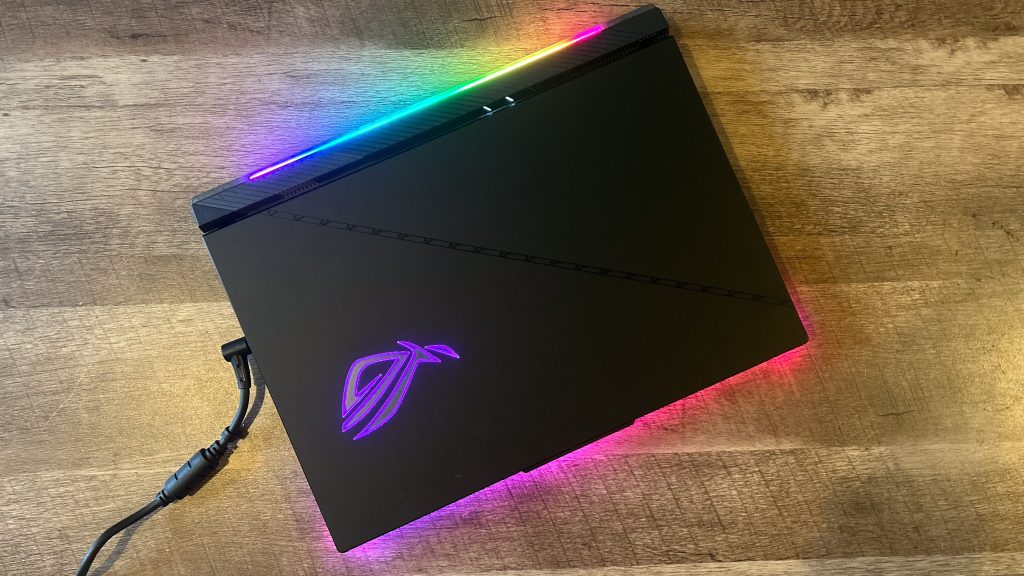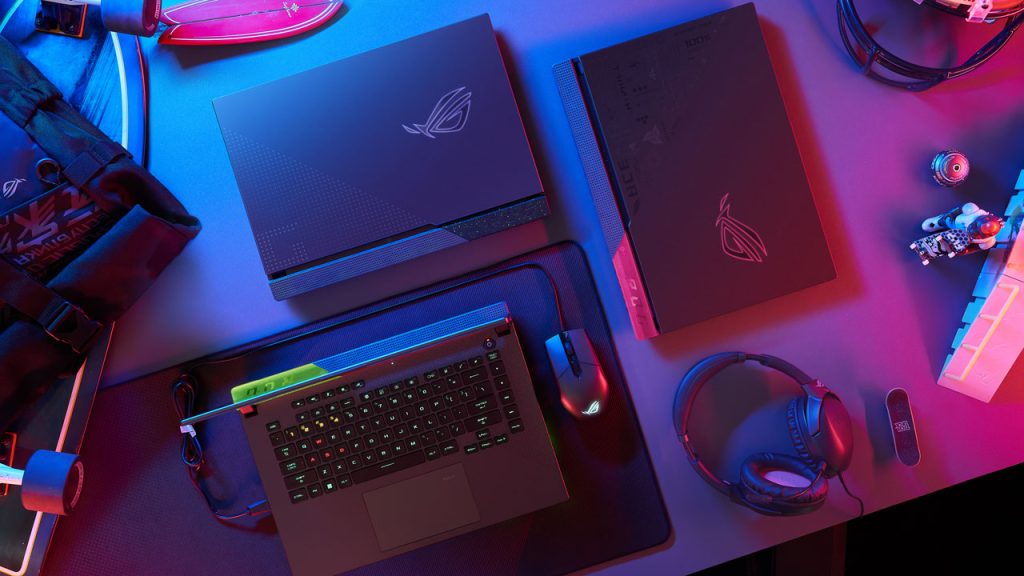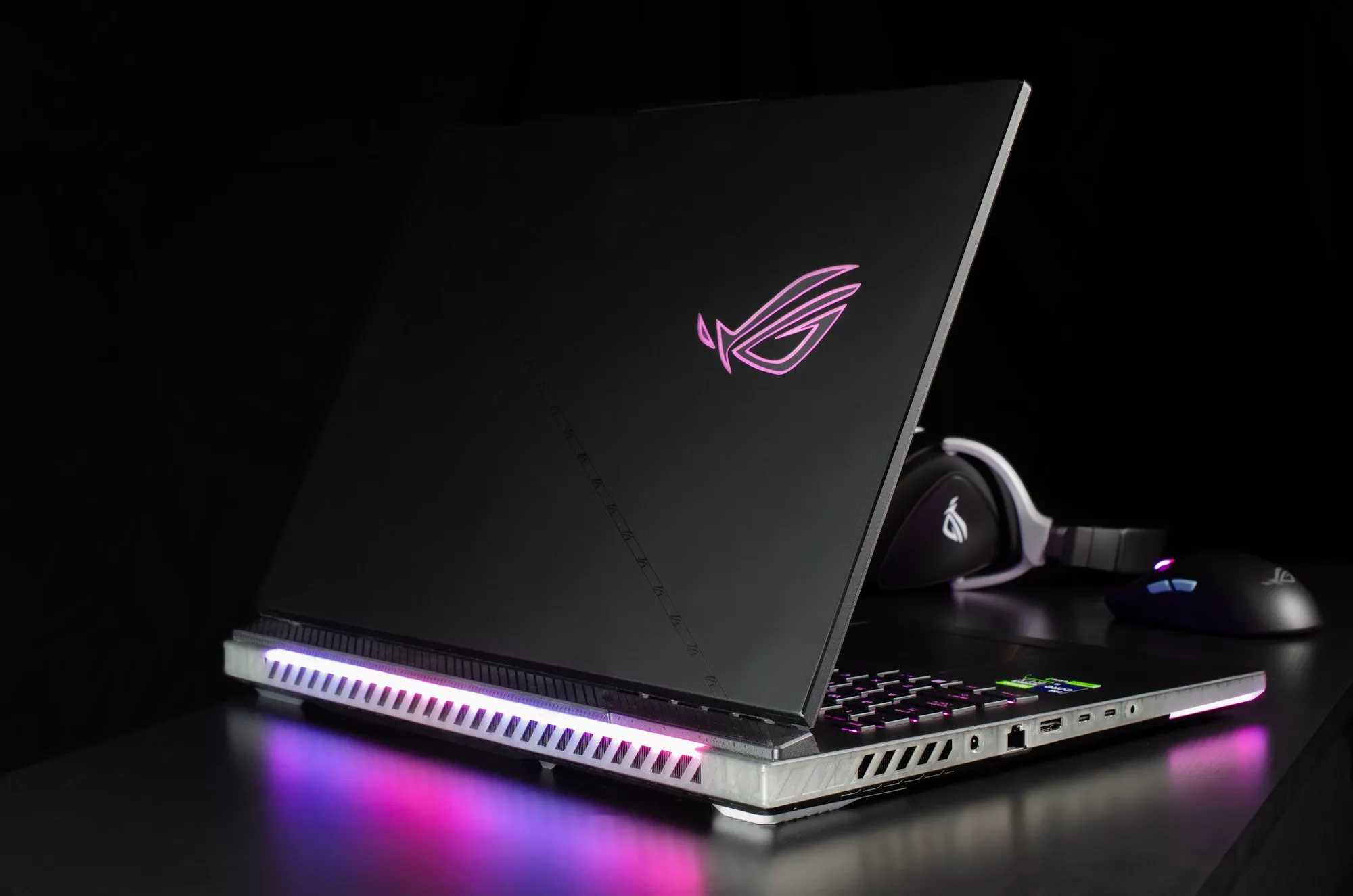Yes, gaming laptops can be suitable for students, particularly those requiring high-performance capabilities for tasks such as video editing and 3D modeling, or those who balance work and gaming.
However, they often come with a trade-off: they tend to be heavier and more expensive than regular laptops, with shorter battery life, which may not be ideal for students needing extended usage. In quiet study environments, the fan noise and heat generated by gaming laptops can be disruptive. Therefore, the suitability of it depends on individual needs and preferences.
Pros of Using a Gaming Laptop for Students

Versatility: Gaming laptops are highly versatile. They are capable of handling a wide range of tasks, including academic work, research, content creation, and entertainment. Students can use them for both productivity and leisure.
Performance: Moreover, they are equipped with powerful processors and high-end graphics processing units (GPUs), making them ideal for running resource-intensive software and applications. This allows for smoother multitasking and efficient completion of academic projects.
Quality Display: Further, they feature high-quality displays with vibrant colors, high resolutions, and fast refresh rates. This benefits students when working on visual tasks, such as graphic design, video editing, or simply reading and viewing multimedia content.
Multimedia Experience: The advanced audio and visual capabilities of them enhance the multimedia experience. This is valuable for students who watch educational videos, attend virtual lectures, or simply want to enjoy high-definition movies and games.
Upgradability: Gaming laptops often have easily accessible upgrade options for RAM, storage, and even GPU, extending their lifespan and adaptability to changing needs. This can be a cost-effective feature for students who may want to improve their laptop’s performance over time.
Gaming Potential: As the name suggests, They are designed to run modern video games effectively. For students who are also gamers, having a gaming laptop means they can enjoy their favorite titles during their leisure time without needing a separate gaming device.
Portability: While some gaming laptops can be bulky, there are models designed with portability in mind. Slimmer and lightweight gaming laptops are available, making it easier for students to carry their laptops to classes, libraries, or while traveling.
Connectivity: Further, it often comes with a variety of ports, including multiple USB, HDMI, and Ethernet ports, which can be advantageous for students who need to connect to external displays, peripherals, or wired networks for faster internet connections.
Enhanced Cooling: Many are equipped with advanced cooling solutions to prevent overheating during extended use. This is especially beneficial for students who might run resource-intensive applications for extended periods.
Longevity: Gaming laptops typically have robust build quality and durability, designed to withstand the rigors of intense gaming. This durability can translate into a longer lifespan for students, reducing the need for frequent replacements.
Cons of Using a Gaming Laptop for Students
Cost: Gaming laptops tend to be more expensive than standard laptops with similar specifications. The high-end hardware required for gaming performance can lead to a significant upfront investment, which may not be affordable for all students.
Battery Life: They are known for their shorter battery life. The powerful processors and GPUs drain the battery quickly, requiring frequent recharging. This can be inconvenient for students who rely on their laptops during long lectures or study sessions.
Weight and Size: Many of them are bulkier and heavier than their non-gaming counterparts. Carrying a heavy laptop around campus or in a backpack can be tiresome, especially for students who are constantly on the move.
Distracting Features: Gaming laptops come with dedicated graphics and immersive audio, which can be tempting distractions when students should be focusing on their academic work. The presence of games and high-quality media can make it challenging to stay disciplined and avoid procrastination.
Noise Level: They often have powerful cooling systems to manage heat generated during intense gaming sessions. These cooling fans can be noisy, which might disrupt quiet study environments like libraries or shared study spaces.
Heat Emission: Moreover, they can become quite hot during extended use, which might not be comfortable when used on a lap. The heat emission can also lead to discomfort during hot weather or when working in non-ideal conditions.
Limited Portability: While some of them are designed to be more portable, they are still less mobile compared to ultrabooks or smaller laptops. Students who need a highly portable device might find gaming laptops less convenient.
Potential Overkill: Depending on the student’s academic needs, it might be overkill. If the primary use is word processing, web browsing, and basic software applications, the high-performance hardware of a gaming laptop might be unnecessary and cost-efficient.
Lack of Business Aesthetics: They often have a more aggressive and flashy design, which might not be suitable for students pursuing business or professional degrees. The aesthetics of gaming laptops may not align with the student’s field of study or future workplace expectations.
Limited Battery Lifespan: The high power demands of gaming laptops can lead to a shorter overall battery lifespan. Over time, the battery’s capacity may degrade, reducing its ability to hold a charge. This can be an issue for students who intend to use their laptops for several years.
Factors to Consider When Choosing a Gaming Laptop for Students
- Budget: Determine a realistic budget for the gaming laptop. Gaming laptops can vary greatly in price, so it’s essential to strike a balance between affordability and performance.
- Academic Requirements: Assess the specific software and hardware requirements for academic coursework. Ensure that the laptop can handle the software and applications needed for your major or field of study.
- Performance: Consider the level of performance you require for both gaming and academic tasks. Look at the laptop’s processor, RAM, and GPU to ensure it can smoothly run resource-intensive software and games.
- Portability: Think about how often you’ll need to carry the laptop to classes, libraries, or other locations. Weight and size are important considerations, and you might want to opt for a more portable gaming laptop if mobility is essential.
- Battery Life: Evaluate the laptop’s battery life to ensure it can last through a full day of classes or study sessions without frequent recharging. A longer battery life is especially important for students on the go.
- Display: Consider the display quality, resolution, and refresh rate. A high-quality screen is important for both productivity and an immersive gaming experience. Look for an anti-glare display to reduce eye strain during long study sessions.
- Gaming Interests: Determine your gaming preferences and requirements. If you’re a casual gamer, a mid-range GPU may suffice. Enthusiast gamers might need a high-end GPU for the best gaming experience.
- Storage: Decide on the amount and type of storage you need. Solid-state drives (SSDs) are preferable for faster boot times and application loading, while a larger traditional hard drive (HDD) might be necessary if you have many large files.
- Cooling System: Gaming laptops generate heat during extended gaming sessions. Ensure that the laptop has an efficient cooling system to prevent overheating and maintain consistent performance.
- Upgradability: Check if the laptop allows for easy upgrades in the future, such as adding more RAM or swapping out storage drives. This can extend the laptop’s lifespan and adaptability.
- Build Quality: Consider the laptop’s build quality and durability. A sturdy chassis is important, especially if the laptop will be transported frequently.
- Connectivity: Ensure the laptop has the necessary ports for your needs. This includes USB ports, HDMI, Ethernet, and any other specific connections you require for peripherals and external devices.
- Aesthetics: Gaming laptops often have a unique design. Consider whether the laptop’s aesthetics align with your personal preferences and any professional or academic requirements.
- Brand and Warranty: Research the reputation of the laptop manufacturer and the availability of warranties and customer support. A reliable brand and a good warranty can provide peace of mind.
- Reviews and User Feedback: Read reviews and gather feedback from other users who have experience with the specific gaming laptop models you’re considering. This can provide valuable insights into real-world performance and user satisfaction.
Overview of Gaming Laptops for Students
- MSI Sword 15.6″ Gaming Laptop (Model: Sword15001):
- Price: $771.99 (on clearance)
- Rating: 4.4 out of 5 stars
- Key Features: Intel Core i7, NVIDIA GeForce RTX 3050 Ti, 512GB SSD, 8GB Memory, 144Hz refresh screen, 512GB SSD.
- Lenovo Legion 5 Pro 16″ WQXGA Gaming Laptop (Model: 82RY000KUS):
- Price: $1,091.99 (on clearance)
- Rating: 4.4 out of 5 stars
- Key Features: Ryzen 7 6800H, NVIDIA GeForce RTX 3050 Ti, 16GB Memory, 512GB SSD, 16″ WQXGA display, Legion Coldfront 3.0 thermal system.
- HP Victus 15.6″ Gaming Laptop (Model: 15-fa0031dx):
- Price: $639.99 (on clearance)
- Rating: 4.5 out of 5 stars
- Key Features: Intel Core i5-12450H, NVIDIA GeForce GTX 1650, 8GB Memory, 512GB SSD, HD Camera with Temporal Noise Reduction.
- Lenovo Legion Slim 7 AMD Advantage Edition 16″ WQXGA Gaming Laptop (Model: 82UG0002US):
- Price: $1,300.99 (on clearance)
- Rating: 4.3 out of 5 stars
- Key Features: AMD Ryzen 9 6900HX, AMD Radeon RX 6800S, 16GB Memory, 1TB SSD, Aluminum and Magnesium build.
- MSI Cyborg 15.6″ 144Hz Gaming Laptop (Model: CYBORG1512046):
- Price: $999.99
- Rating: 4.7 out of 5 stars
- Key Features: Intel Core i5, NVIDIA GeForce RTX 4050, 8GB RAM, 512GB SSD, futuristic mechanized exterior design.
- ASUS ROG Zephyrus 14″ 165Hz Gaming Laptop QHD (Model: GA402XZ-CS94):
- Price: $2,499.99
- Rating: 4.3 out of 5 stars
- Key Features: AMD Ryzen 9 7940HS, NVIDIA GeForce RTX 4080, 16GB RAM, 1TB SSD, 14-inch 165Hz WQXGA display.
- MSI Stealth 17.3″ 240Hz QHD Gaming Laptop (Model: STEALTH1713008):
- Price: $2,999.99
- Rating: 3.9 out of 5 stars
- Key Features: Intel Core i9-13900H, NVIDIA GeForce RTX 4080, 32GB Memory, 2TB SSD, suitable for gaming and work.
- Lenovo Legion Slim 5 16″ Gaming Laptop WUXGA (Model: 82Y9000QUS):
- Price: $1,349.99
- Rating: 4.7 out of 5 stars
- Key Features: Ryzen 5 7640HS, NVIDIA GeForce RTX 4060 8GB, 16GB Memory, 512GB SSD, ideal for gaming and rendering work.
- MSI Stealth 14″ 165Hz FHD+ Gaming Laptop (Model: STEALTH1413041):
- Price: $1,499.99
- Rating: 4.3 out of 5 stars
- Key Features: Intel Core i7 13620H, NVIDIA GeForce RTX 4060, 16GB RAM, 1TB SSD, suitable for gaming and work.
- Acer Predator Helios Neo 16″ WUXGA 165Hz IPS Gaming Laptop (Model: PHN16-71-73RR):
- Price: $N/A
- Rating: 4.7 out of 5 stars
- Key Features: Intel i7-13700HX, GeForce RTX 4050 with 16GB DDR5, 512GB SSD, advanced cooling, high-quality display.
What You Should Buy Instead

Consider alternatives that offer a balance between gaming and academic needs:
1. Cloud Gaming: Cloud gaming services are constantly improving, allowing you to play AAA games without the need for a powerful laptop. This approach reduces the computing demands on your device.
2. Laptops with Integrated Graphics: Many non-gaming laptops come with integrated graphics, which are suitable for running basic games at lower settings. For instance, the MacBook Air M1 offers good performance and excellent battery life.
3. Non-Gaming Laptops: Look for laptops like the Dell XPS 13, which provide a great typing experience, efficient CPU power, and slim design. These laptops may also have integrated graphics for casual gaming.
Consider Your Specific Needs: While gaming laptops can be beneficial for creative tasks and running demanding software, they might not be the best choice for everyday college use. Assess your requirements and explore the alternatives that offer a better balance between work and play.
FAQ’s
Q: Can students use gaming laptops?
A: Yes, students can use gaming laptops, especially if they need high-performance capabilities for tasks like video editing and 3D modeling. However, gaming laptops are heavier, pricier, and have shorter battery life compared to regular laptops. It depends on the specific needs and preferences of the student.
Q: Are gaming laptops OK for everyday use?
A: Yes,Gaming laptops can be used for day-to-day tasks and entertainment just like regular laptops. They share the same operating systems and can handle everyday functions and entertainment purposes.
Q: Is a gaming laptop better than a normal laptop?
A: Yes, Standard laptops can also handle gaming, depending on the game’s requirements. Gaming laptops offer high-speed performance, designed for demanding tasks. RAM capacity is a key factor, as gaming laptops often have larger RAM and memory.
Q: Is gaming good for a student?
A: Yes, Gaming can provide experiential learning opportunities for students, enhancing memorization and retention. It offers a variety of environments for exploration and learning.
Q: How much RAM is good for gaming?
A: For gaming, 16GB of RAM is recommended to ensure smooth gameplay. If you plan to multitask or do more than gaming, consider 32GB for added performance.
Q: What are the disadvantages of a gaming laptop?
A: Gaming laptops are typically larger and heavier than regular laptops, making them less portable. They also have shorter battery life due to their high-performance components and specialized cooling solutions.
Final Words
In conclusion, gaming laptops can be a suitable option for students, especially if they require high-performance computing for demanding tasks like video editing or 3D modeling, and if they also enjoy gaming.
However, students should carefully consider factors like portability, budget, and battery life, as gaming laptops are typically heavier, more expensive, and have shorter battery life compared to standard laptops.
Additionally, the potential noise and heat generated by gaming laptops may not be ideal for quiet study environments. Ultimately, the decision should be based on the individual student’s specific needs and preferences.









